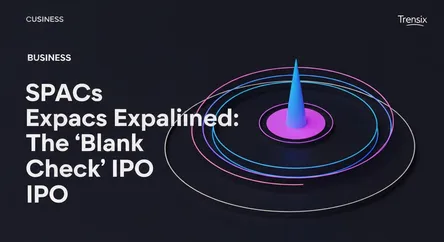Business
SPACs Explained: The 'Blank Check' IPO

Discover SPACs, or 'blank check' companies. Learn how these shell corporations raise capital through an IPO to acquire an existing private company.
What is it?
A Special Purpose Acquisition Company (SPAC), often called a 'blank check company,' is a shell corporation with no commercial operations. It is formed by investors or sponsors with expertise in a particular industry or business sector with the sole purpose of raising capital through an Initial Public Offering (IPO). The funds raised are then used to acquire or merge with an existing private company, effectively taking it public without a traditional IPO process.
Why is it trending?
SPACs surged in popularity as a faster, more streamlined alternative for private companies to enter public markets. This route bypasses the lengthy and often uncertain road of a traditional IPO, which became particularly appealing during periods of market volatility. High-profile sponsors and celebrity-backed SPACs also generated significant media buzz, drawing attention from both institutional and retail investors looking for high-growth opportunities, especially in sectors like technology and electric vehicles.
How does it affect people?
For everyday investors, SPACs offer a way to invest in emerging private companies at an early stage, an opportunity previously reserved for venture capitalists and private equity. However, this access comes with substantial risks. The share price can be highly volatile, and the performance of companies that go public via SPACs has often been disappointing post-merger. The structure can sometimes benefit sponsors more than public shareholders, potentially leading to significant losses for investors who are not fully aware of the complexities involved.